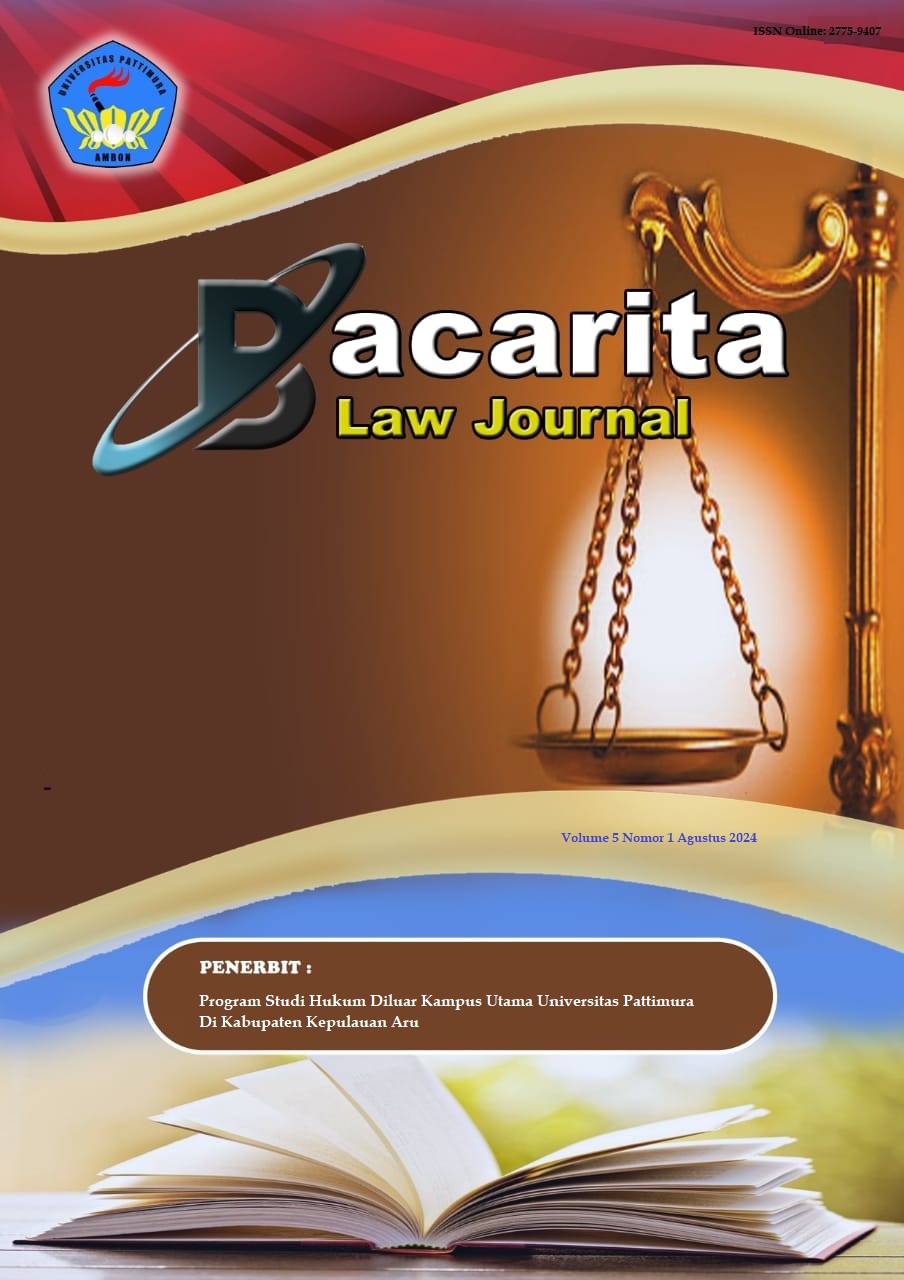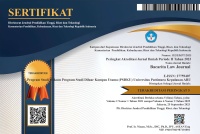Problematika Hak Eksekutorial Jaminan Fidusia: Perspektif Kepentingan Debitur
Abstract
A common problem in the enforcement of fiduciary guarantees is the seizure of collateral that violates consumer rights. Creditors often seize collateral without taking into account consumer rights protected by law. This can lead to disputes between the creditor and the debtor. The purpose of this research is to analyze the problems of fiduciary enforcement rights from the perspective of debtors' interests. The research method used is Normative Juridical Research with the type of library research. Debtors must check the credit agreement more carefully, in particular the clause "voluntary execution of the agreement"; if the clause is absent, the execution cannot be carried out unilaterally without any legal remedy declaring the debtor in default.
Downloads
References
Jurnal
Akhmad Yasin, 2020, “Dampak Jaminan Fidusia Kredit Kendaraan Bermotor yang Tidak Didaftarkan Terhadap Penerimaan Negara Bukan Pajak”, Jurnal Konstitusi, Vol. 17(4).
Riza Purnomo Hadi, Mekanisme Eksekusi Jaminan Fidusia Pasca Putusan Mahkamah Konstitusi Dalam Hal Debitur Wanprestasi, Dinamika, Jurnal Ilmiah Ilmu Hukum, Volume 26 Nomor 16, Agustus 2020, 1902-1914.
Sinambela, Sangga. 2022. “Implikasi Jaminan Fidusia Yang Tidak Didaftarkan Ke Kantor Pendaftaran Fidusia”. Yure Humano 4 (2):1-34.
Buku
Irwansyah, Penelitian Hukum (Pilihan Metode & Praktik Penulisan Artikel), Yogyakarta: Mirra Buana Media, 2020.
Kosasih, Johannes Ibrahim, Anak Agung Istri Agung, dan Anak Agung Sagung Laksmi
Dewi, 2021, “Parate Eksekusi Fidusia (Polemik Kepastian Hukum dan Bisnis)”, Bandung, CV. Mandar Maju.
S. Djoni Gazali Dan Rachmadi Usman. Hukum Perbankan, Sinar Grafika, Jakarta, 2010.
Copyright (c) 2024 Wijaya Natalia Panjaitan

This work is licensed under a Creative Commons Attribution-NonCommercial 4.0 International License.
Authors who publish their manuscripts in this Journal agree to the following conditions:
- The copyright in each article belongs to the author, as well as the right to patent.
- Authors are able to enter into separate, additional contractual arrangements for the non-exclusive distribution of the journal's published version of the work (e.g., post it to an institutional repository or publish it in a book), with an acknowledgment of its initial publication in this journal.
- Authors are permitted and encouraged to post their work online (e.g., in institutional repositories or on their website) prior to and during the submission process, as it can lead to productive exchanges, as well as earlier and greater citation of published work.
- Authors have the right to self-archiving of the article (Author Self-Archiving Policy)















